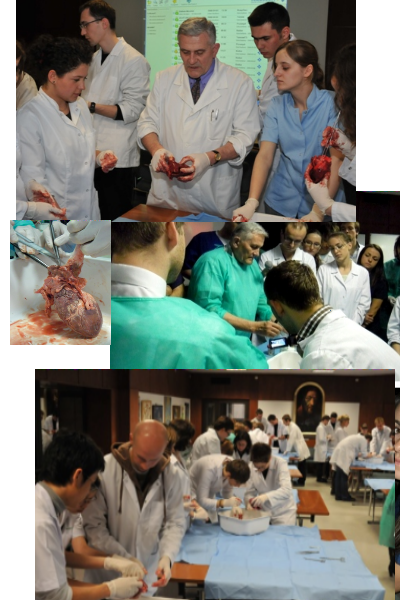Pre conference workshops
Workshop on Early Cardiotoxicity Prediction
4th Workshop on using Computational Methods in Pharmaceutical Sciences is a one day long training which will take place in 8th of September, 2012. The main goal of the Workshop is to provide in depth, practical information about the design, development, validation and implementation of the computational methods. This year focus will be put on the early cardiotoxicity prediction with use of the computationally realized human cardiomyocyte models. Such approach allows for mechanistic extrapolation of the in vitro results to the human situation. This interactive conference addressed tier one issues in two seminar tracks: Concepts (What) and Hands-on (How). The agenda includes seminars, hands-on exercises and open discussions during sessions. The opening address will be given by Natalia Trayanova PhD, FHRS, FAHA Professor of Biomedical Engineering, William R. Brody Faculty Scholar, Department of Biomedical Engineering and Institute for Computational Medicine, Johns Hopkins University Baltimore. Further details are available from http://www.cpw.edu.pl
Workshop on Cardiac Surgery
Date: 8th September 2012
Meeting: 9:00, Workshop time: 9:30 – 13:30, Bus return 14:00
Venue: Conference room, Department of Cardiovascular Surgery & Transplantology, Jagiellonian University; John Paul II Hospital, Pradnicka 80, Krakow, PL
Conduct & superintendence: Assoc. Prof. Roman Pfitzner, MD, PhD, FCTS
Transportation will be provided from U2 building
Program
Part I. Lectures.
1. Invitation and introduction – Roman Pfitzner
2. Basics of heart anatomy and functions; differences between human and porcine heart - Agnieszka Wolny
3. Surgical instruments and introduction to surgical techniques – Anna Kędziora
4. Discussion and comments
Part II. Practical lessons.
1. Introduction, practical remarks – Roman Pfitzner
2. Observation of heart anatomy (porcine hearts), preparation, practising of basic surgical techniques.
3. Discussion, closing remarks.
Lessons in up to ten subgroups of up to four persons.
Support – Roman Pfitzner & team.

